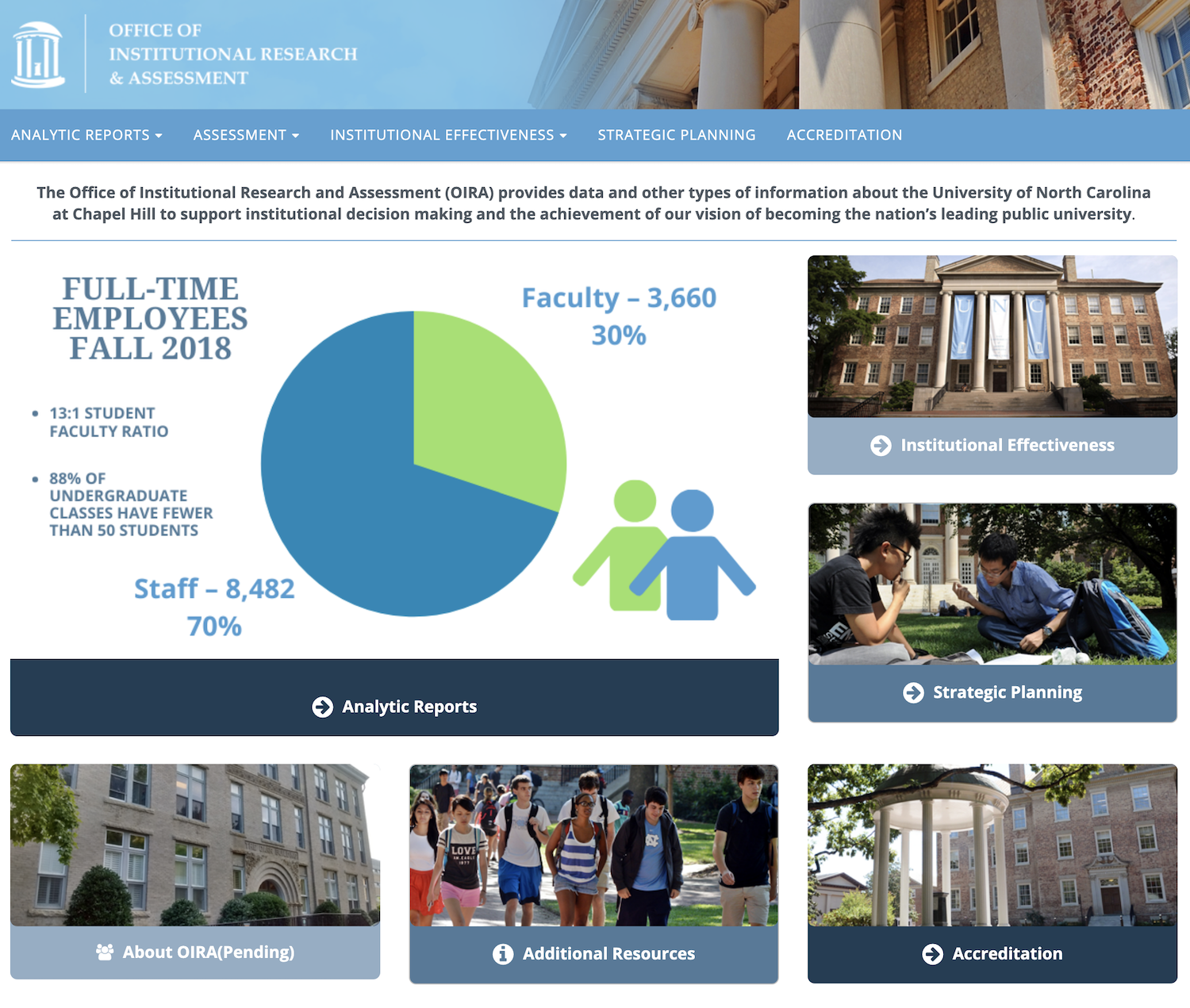
The Office of Institutional Research and Assessment (OIRA) from the University of North Carolina at Chapel Hill is NILOA’s first Featured Website of 2020! The mission of OIRA is to “support institutional decision making and the achievement of our vision of becoming the nation’s leading public university” through disseminating timely institutional data and information. All departments and programs across UNC Chapel Hill must have learning outcomes statements accompanied by appropriate assessment plans to measure those outcomes and identify areas of improvement. In support of this, the OIRA provides assessment resources for academic programs and administrative units; including tips on getting started, relevant professional development opportunities, examples, and additional assessment resources. Additionally, the university’s assessment policies are readily available for faculty, staff, and administrators to read, including useful definitions, supporting materials, and an assessment reporting calendar.
UNC Chapel Hill’s OIRA website also features various interactive reports accompanied by definitions and footnotes, when applicable, so readers can easily understand the data. In support of institutional effectiveness, the OIRA website provides a snapshot of how well the institution is meeting its student success goals and strategic plan. The results of various surveys, including diversity, student engagement, and alumni surveys, are offered and contextualized with information regarding the purpose and scope of each survey. Finally, information on the institution’s accreditation is supported by additional documents, including communications with the Southern Association of Colleges and Schools Commission on Colleges (SACSCOC), program accreditation status, and links to SACSCOC’s accreditation guidelines and requirements. For these reasons, the Office of Institutional Research and Assessment at the University of North Carolina at Chapel Hill is a Featured Website in the categories of Centralized Assessment Repository, Communication, and Creativity. The webpage is also an institutional example for the NILOA Transparency Framework in the Evidence of Student Learning component.

